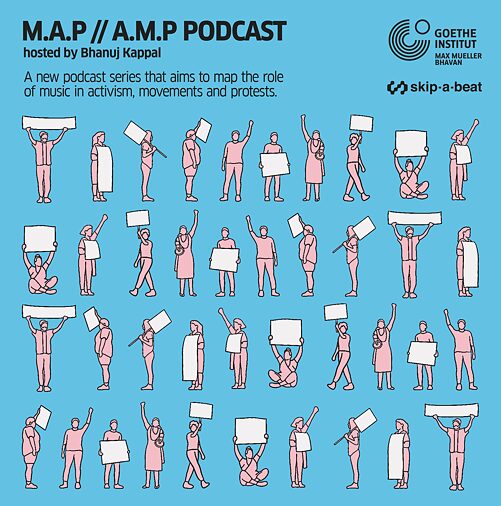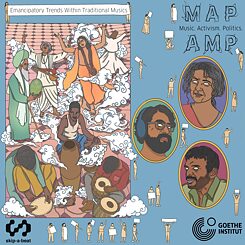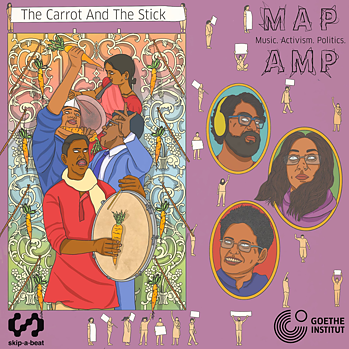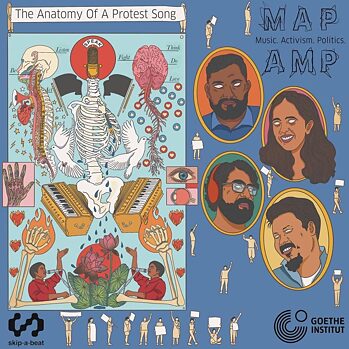Episode #3: Emancipatory Trends Within Traditional Music
South Asia has a rich heritage of traditional musical traditions - both within the classical and folk idioms - that have been deployed by different groups to both reinforce and subvert social and political orthodoxies.
...learn more
One example is the 20th century tradition of taking folk forms (shahiri, tamasha etc) that that usually were used to express devotion to religious deities and reinforced social hierarchy (though many of these were already subversive in subtle ways) and infusing them with revolutionary or emancipatory content, whether in the form of Indian People’s Theatre Associations’ ‘people songs’ or the aforementioned Ambedkarite jalsas. Other artists or movements tapped into the already progressive traditions of bhakti or sufi music and updated them to counter contemporary forms of oppression or injustice. More recently, Carnatic vocalist T M Krishna has used a classical form considered the domain of conservatives and used it to shine a light on issues of caste, communalism and environmentalism, which has generated considerable controversy and pushback. In this conversation we will look at how contemporary artists can use and/or subvert this pre-existing cultural heritage and collective memory in their practice. We’ll also interrogate the effectiveness of such approaches in an increasingly globalised world, where contemporary pop music often diverges significantly from these traditions, and the tricky balance between authenticity and the necessity of innovation to keep up with contemporary trends that might be more effective in reaching out to specific audiences or demographics.
About the Podcast Series
M.A.P // A.M.P is a new podcast series by Goethe-Institut that aims to map the role of music in activism, movements, and protests. Host Bhanuj Kappal explores the intersection of music and activism in the South Asian Context, aided by musicians, academics and cultural organisations from across the subcontinent. Guests include Carnatic musician T.M. Krishna, New Delhi-based academic and singer Sumangala Damodaran, Bangladeshi pop musician and songwriter Shayan, and Manipuri protest folk musician Akhu Chingangbam. Over eight episodes we will dive deep into the history of progressive musical traditions on the subcontinent, look at the challenges and opportunities met by cultural practitioners across the region, and imagine new possibilities for global solidarity and action through music.
Our host Bhanuj Kappal is a Mumbai-based writer and music critic who has been covering Indian independent music for the past 14 years, with a special interest in exploring junctures of music and politics. His thesis research focused on protest music culture in India, with an emphasis on activist poets in Maharashtra. He is a regular contributor to Pitchfork, GQ India, Mint Lounge, and Mumbai Mirror, and has also written for The Caravan, BBC Culture, The National, and the New Statesman politics blog. He also worked on a landmark story about sexual harassment in the independent music industry for The Caravan. In recent years, he has written extensively about India's emerging hip-hop scene, which is also the subject of his upcoming book. He's also the writer and director of Gully Se Gully Tak, a 20-part Audible Original podcast series (released Dec 2019) that focuses on the lives and careers of Indian rappers.



